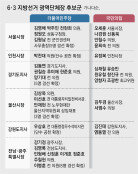Chaekmun: Answering the Questions of the Age
Chaekmun: Answering the Questions of the Age
Posted September. 03, 2004 22:08,

By Kim Tae-wan. 504 pp. 20,000 won. Published by Sonamu.
I, who am foolish and undiscerning, have inherited the great work of ruling this kingdom. I lack both sagacity and wisdom, and cannot see what tasks are most urgent, like one who is faced with deep pools and thin ice without knowing how to cross them.
In 1611, Joseons ruling monarch Gwanghaegun voiced this earnest appeal to the 33 state examination finalists, as the question for the Chaekmun (策問, section that asks the examinee about political strategy) portion of the test. The question asks what is most imperative for the revitalization of the peoplein regard to engaging men of ability for public offices, reforming the tax system, maintaining land and properties, organizing family registers, etc.following the ravages of the 1592 Japanese Invasion.
The thirty-five-year-old scholar Im Suk-yeong responds, Why do you not speak of your own mistakes and the countrys faults? He boldly argues that the most urgent undertaking should be to eliminate the intervention of the queen and the concubines, the practice of advancing into public office through bribery, and the repression of opinions that criticize the wrongs of the monarch.
This reply is a severe denouncement of the cardinal weakness of Gwanghaegun, who conducted Joseon Dynastys highest order of realistic diplomacy but ultimately failed in his domestic administration. Gwanghaegun was the son of a concubine and thus was compromised in terms of legitimacy to the throne; he employed a large number of Buk-in (people affiliated to the Northern party), who had previously been excluded from power, and advocated reform, but eventually sealed his own doom by endorsing the political collusion of the concubines and the Buk-in faction, selling public titles and offices to generate revenue, and suppressing negative critiques of such damaging practices.
The modest wording of the Chaekmun question seems to reflect Gwanghaeguns awareness of this state of affairs, but upon reading Ims answer, the king became outraged and demanded that Ims name be stricken from the list of those who had passed the examination. The controversy dragged on for four months, aided by the appeals of such principal ministers of state as Lee Hang-bok and Lee Deok-hyeong, but was eventually wrapped up with the kings pronouncement that henceforth none whose answer deviates from the purport of the question be selected in the state examination.
The Joseon state examination, known as Gwageo, is divided into the Sogwa (the preliminary exam) and the Daegwa (the main exam). The former is again divided into the Saengwon-si, which tests ones knowledge of the Nine Chinese Classics, and the Jinsa-si, which evaluates the examinees writing abilities through the composition of poetry. Those who have passedand thus given the titles of Jinsa or Saengwonthen go on to take the Daegwa. This latter exam generally takes place in three stages, called Cho-si (初試), Bok-si (覆試), and Jeon-si (殿試). Passing a state exam refers to successfully completing the Cho-si and the Bok-si. The 33 candidates who have passed the exam then take the Jeon-si, which is superintended by the king himself, to be ranked according to their abilities. Chaekmun is a test question that the king personally poses during this final round, and requires the examinee to come up with solutions for important administrative tasks of the day.
Kim Tae-wans book collects 13 Chaekmun questions that pertain to current political circumstances alongside 15 answers by famous statesmen, and provides the Korean translations and explanations for them. Although the policies offered by the examinees are based on Confucian metaphysical philosophies of morality, justice, and virtue, the critical attitude that informs them still retains resonance in our present-day lives.
In fact, the book clearly demonstrates that the Joseon state examination system was not based simply on knowledge of the classics and skill with a pen. As the example of Im Suk-yeong reveals, such rites are replete with the practical concerns and fears of the rulers as well as the life-staking intensity of the young minds who aspired to government.
In 1515, Jungjong posed the Chaekmun question, If you were Confucius, how would you rule under the kingdoms present circumstances? Among those who answered was Cho Gwang-jo, who later went on to launch an ethical reform. He made his position clear by writing, In contemplating the rule of a country, Confucius advocated the illumination of the right way (do, 道), and in meditating on learning, he spoke on being vigilant when left to ones self.
Seong Sam-mun and Shin Suk-ju passed the state examination side by side in 1447, the 29th year of Sejongs reign, but posterity has evaluated them respectively as an eternally loyal servant of the king and a utilitarian. Their answers to Sejongs questionEven the best of laws give way to corruption in the long run. How should we prevent this?reflect this divergence. Seong wrote that the problem rested on the heart of the king, writing, The heart is the foundation; law is merely the means. In contrast, Shin answered that it depends on whom you hire for the job. One cannot but wonder whether their eventual destinies were presaged in these answers, the one emphasizing a monarch-centric sense of allegiance (chung, 忠) and the other foregrounding the idea of practicality (yong, 用) from the subjects point of view.
Chae-Hyun Kwon confetti@donga.com



![[단독]주한미군 무기 중동 차출 협의…핵심 ‘에이태큼스’ 거론](https://dimg.donga.com/c/138/175/90/1/wps/NEWS/IMAGE/2026/03/05/133466662.1.jpg)

![[김순덕 칼럼]‘삼권장악 대통령’으로 역사에 기록될 텐가](https://dimg.donga.com/c/138/175/90/1/wps/NEWS/IMAGE/2026/03/04/133466302.1.jpg)

